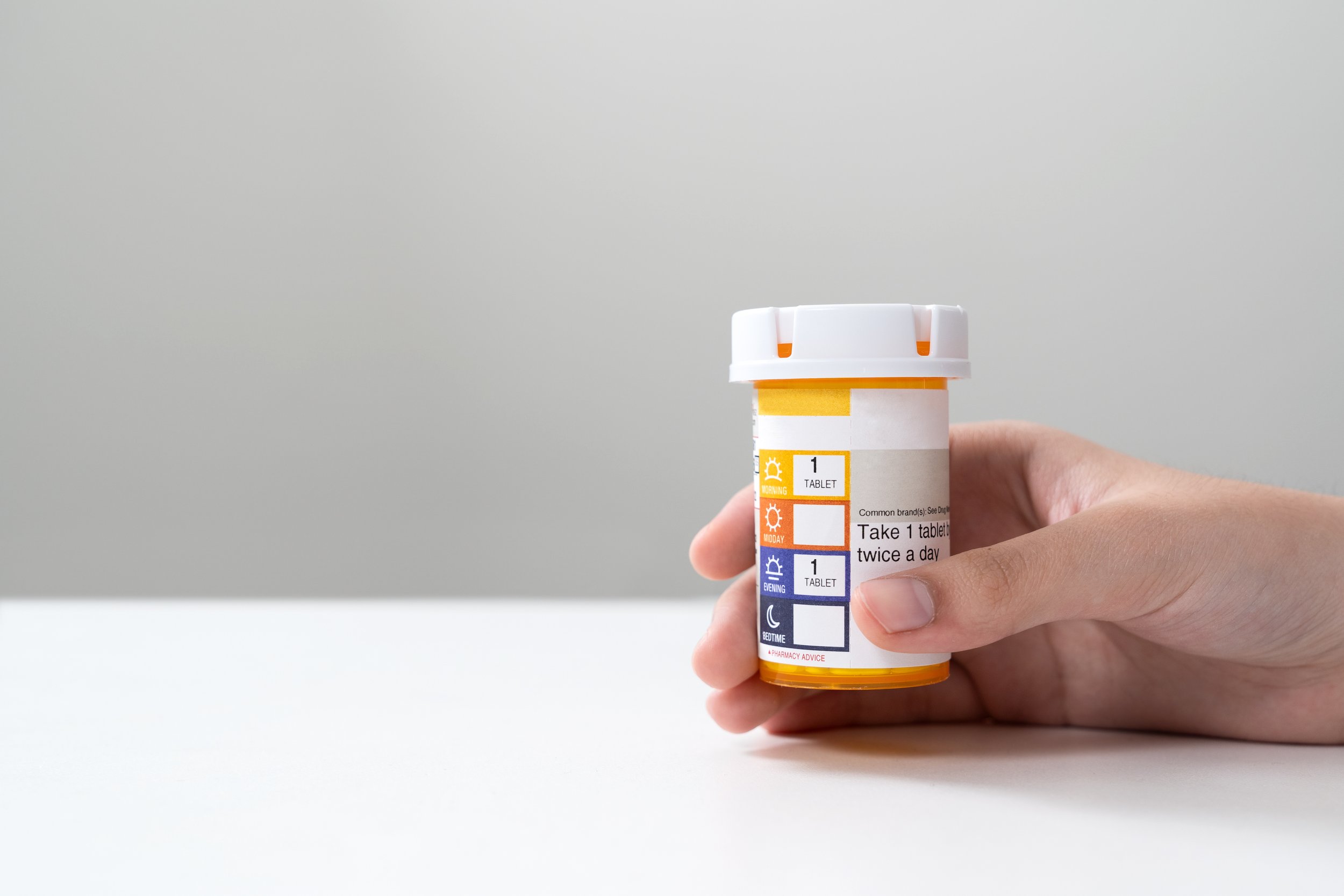
Your Symptoms Aren’t Random
—Let’s Find Out Why
With comprehensive lab testing, we uncover the root of menopause, HSDD, thyroid dysfunction, and autoimmune conditions for a customized approach.
WOMEN’s Full Panel
Our full women's panel will help find the root causes of the following symptoms:
HSDD (Hypoactive sexual desire disorder)
Increased body fat
Loss of muscle mass
Fatigue
Loss of sexual interest
Joint or muscle discomfort
Infertility
Women's Comprehensive Panel
Our women's comprehensive panel gives you an in-depth and complete viewpoint of your body's health. Identify the root causes for the following symptoms:
Fatigue
Low libido
Mood swings
Anxiety
Chronic stress symptoms
Joint or muscle discomfort
Irregular menstrual cycles
Headaches
Difficulty losing weight
Difficulty gaining muscle
Dizziness
Hot flashes
WOMen's Weight Loss Panel
For some weight loss can seem impossible. Our women's weight loss panel goes deep to uncover potential causes of the following:
Difficulty losing weight
Difficulty gaining muscle
Fatigue
Muscle weakness
Appetite changes
Difficulty sleeping
HEALTH IMPLICATIONS OF HORMONAL IMBALANCE
Fluctuations in estrogen, progesterone, testosterone, and thyroid hormones can impact overall well-being and body composition.
Let’s talk MenOpause
Menopause marks a significant transition in a woman's life, bringing various health considerations to the forefront. Understanding the statistics surrounding menopause-related health issues can empower women to take proactive steps in managing their well-being.
Bone Health and Osteoporosis
Bone Density Loss
Research indicates that up to 20% of bone loss can occur during the menopause transition.
endocrine.org
The decline in estrogen levels during menopause accelerates bone loss, increasing the risk of osteoporosis. Notable statistics include:
Fracture Risk
Postmenopausal women are at a higher risk of fractures, particularly in the hip, spine, and wrist, due to decreased bone density.
bonehealthandosteoporosis.org
Osteoporosis Prevalence
Approximately 1 in 10 women over the age of 60 are affected by osteoporosis worldwide.
endocrine.org
Cognitive Health and Dementia
Menopause also has implications for cognitive health, with studies exploring the relationship between menopausal timing and dementia risk:
Dementia Prevalence
Women comprise an estimated 65% of individuals with dementia, a disparity not fully explained by longer life expectancy alone.
alzheimers.org.uk
Early Menopause and Dementia Risk
Women who experience menopause before the age of 40 have a 35% higher risk of developing dementia later in life.
newsroom.heart.org
Age at Menopause
Compared to women who undergo menopause at ages 46–50, those with earlier natural menopause (before age 40) have a higher risk of all-cause dementia.
pmc.ncbi.nlm.nih.gov
Cardiovascular Health
The reduction in estrogen levels during menopause can also impact cardiovascular health:
Heart Disease Risk
Postmenopausal women have an increased risk of developing cardiovascular diseases compared to premenopausal women.
Cholesterol Levels
Menopause is associated with unfavorable changes in lipid profiles, including increased LDL cholesterol and decreased HDL cholesterol.
Managing Health Post-Menopause
Awareness of these statistics underscores the importance of proactive health management during and after the menopausal transition. Strategies include:
Bone Health
Engaging in weight-bearing exercises, ensuring adequate calcium and vitamin D intake, and discussing bone density screening with healthcare providers.
Cognitive Health
Maintaining mental stimulation, managing cardiovascular risk factors, and considering the timing of menopause and its management in relation to cognitive health.
Cardiovascular Health
Adopting a heart-healthy diet, engaging in regular physical activity, and monitoring blood pressure and cholesterol levels.
Treatment options
-

Injectable testosterone replacement
Injectable testosterone replacement provides a direct and efficient method of delivering testosterone into the bloodstream. This treatment helps restore healthy testosterone levels, improving energy, muscle mass, libido, and overall vitality.
-

Topical Testosterone Cream
Topical testosterone cream is a convenient and effective way to administer testosterone. Applied directly to the skin, this treatment gradually increases testosterone levels, offering benefits such as improved mood, muscle strength, and enhanced libido.
-

Estradiol Injections
Estradiol injections deliver a bioidentical form of estrogen directly into the bloodstream, helping to regulate hormone levels. This treatment is particularly beneficial for women experiencing menopause symptoms, such as hot flashes, mood swings, and vaginal dryness.
-

Topical Estradiol
Topical estradiol is applied directly to the skin and offers a non-invasive way to administer estrogen. This form of therapy helps alleviate common symptoms of menopause, including hot flashes, night sweats, and mood imbalances while promoting overall hormonal balance.
-

Oral Estradiol
Oral estradiol is an estrogen replacement therapy taken in pill form. It is ideal for women who need estrogen to support their hormonal health, especially during menopause. Oral estradiol helps reduce the symptoms of menopause and maintain bone density, skin health, and overall well-being.
-

Oral Progesterone
Oral progesterone provides a natural form of progesterone, helping to balance estrogen levels in the body. This treatment is commonly used to support women experiencing PMS, irregular cycles, or menopause-related symptoms such as anxiety and sleep disturbances.
-

Compounded T4 & T3
Compounded T4 & T3 therapy combines both T4 (thyroxine) and T3 (triiodothyronine) to address hypothyroidism more comprehensively. This treatment option helps regulate metabolism, improve energy levels, and support overall thyroid function in a personalized, precise manner.
-

Armour Thyroid
Armour Thyroid is a natural thyroid medication made from desiccated pig thyroid, containing both T4 and T3. This treatment is an effective option for individuals with hypothyroidism, helping to balance thyroid hormones and alleviate symptoms like fatigue, weight gain, and cold intolerance.
FAQs
-
Bioidentical Hormone Replacement Therapy (BHRT) is a treatment that uses hormones chemically identical to those naturally produced by the body to help restore hormonal balance. BHRT can address symptoms related to menopause, perimenopause, low testosterone, adrenal fatigue, and metabolic dysfunction.
-
If you are experiencing symptoms such as fatigue, weight gain, mood swings, low libido, sleep disturbances, or brain fog, you may have a hormonal imbalance. A consultation with our medical provider can help determine if BHRT is right for you.
-
Yes, we have a licensed medical provider in Arkansas who oversees all patient evaluations, prescriptions, and treatment plans.
-
We do not bill directly to insurance, but we accept HSA (Health Savings Account) and FSA (Flexible Spending Account) cards for payment. We can also provide documentation that you may submit to your insurance provider for potential reimbursement.
-
BHRT uses hormones that are molecularly identical to those produced by the body, whereas traditional hormone replacement therapy (HRT) often uses synthetic or animal-derived hormones. Many patients find that BHRT offers fewer side effects and better symptom relief.
-
Most patients begin noticing improvements in energy, mood, sleep, and overall well-being within a few weeks of starting BHRT. However, full benefits may take three to six months, depending on individual factors such as metabolism, lifestyle, and adherence to the treatment plan.
-
We offer a range of bioidentical hormone therapies, including:
Testosterone therapy (for men and women)
Estrogen and progesterone therapy (for women)
Thyroid optimization
Peptide therapy for hormone support
Adrenal and metabolic hormone optimization
-
When prescribed and monitored by a qualified medical provider, BHRT is considered safe and effective. Regular follow-ups and lab monitoring ensure optimal dosing and minimize risks.
-
BHRT is tailored to each individual. Some patients use BHRT long-term for menopause symptom management, anti-aging benefits, or testosterone replacement, while others may use it for a specific period until their hormone levels stabilize. Your provider will help determine the best approach for you.
-
To begin your BHRT journey:
Schedule a consultation with our care team Discuss your symptoms, medical history, and health goals.
Receive a personalized treatment plan tailored to your needs.
Begin treatment and track your progress with regular follow-ups.

Take control of your health today
Schedule your intro call with BioGen Restoration to see if BHRT is right for you.









